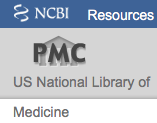PMCID: PMC3467135
PMID: 23056131
Propolis: A New Alternative for Root Canal Disinfection
Maryam Zare Jahromi, Hasan Toubayani, and Majid Rezaei
Abstract
Introduction
This study evaluated and compared colony forming units (CFUs) and minimum inhibitory concentrations (MICs) of calcium hydroxide and propolis as intracanal medicaments.
Materials and Methods
Eighty human single-root and caries-free teeth were selected and divided into five groups. Crowns were removed. Root canals were then prepared in a step-back manner. The samples were then inoculated by Enterococcus (E.) faecalis and incubated for 21 days. Intracanal medications were applied including, calcium hydroxide (n=20), propolis (n=20), and ethanol (n=20). Two groups of 10 teeth were also used as the positive and negative controls. Microbiological sampling was performed utilizing a piezo-reamer drill after one week of incubation. The samples were plated and CFUs were counted after 48 hours. MICs of calcium hydroxide and propolis were measured by serial dilution and agar dilution methods, respectively. The statistical tests of ANOVA and Duncan post-hoc were used to compare different medications.
Results
MICs and CFUs of propolis were dramatically less than calcium hydroxide. The difference between the groups was statistically significant (P<0.001).
Conclusion
Our results reveal that propolis is an effective antimicrobial intracanal agent.
* THESE STATEMENTS HAVE NOT BEEN EVALUATED BY THE FOOD AND DRUG ADMINISTRATION. THIS IS NOT INTENDED TO DIAGNOSE, TREAT CURE OR PREVENT ANY DISEASE.
